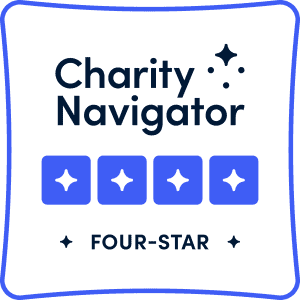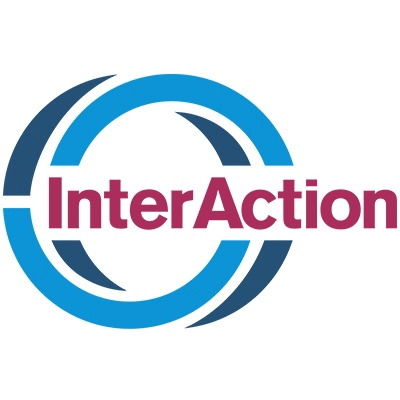History
The Hunger Project was founded in 1977, in the wake of the rising debate on world hunger triggered by the first Rome World Food Conference.
Rather than simply being another relief organization, The Hunger Project was created as a strategic organization. Over the years, The Hunger Project has reinvented itself time and again to meet each challenge along the path of ending hunger.
2017-2026: ACCELERATING
Continued Adaption of 2016-2020 Strategic Plan: As part of our strategy, we continued to adopt national programs of gender-focused, community-led development so that they have a chance of achieving the Sustainable Development Goals of 2030.
Launch of Strategic Framework, 2022-2027: We identified three key Accelerators — areas of action and focus for us to make a quantum leap forward, to amplify voices and reimagine systems. We call them our Accelerators and each has the potential to rapidly transform policies, practices and resource flows with an exponential effect. They are: a global unified voice for the end of hunger; the power of next generation leaders; engaging with the private sector. See our 2022-2027 Strategic Framework.
2007-2016: SCALE UP
Strengthening Monitoring & Evaluation, 2008: We began to greatly strengthen our approach to Monitoring and Evaluation (M&E), including participatory processes in each country to develop a theory of change, a framework of indicators, and a unified online web-based data collection system. M&E officers worldwide became a global community-of-practice.
Food Price Crisis, 2008: New research on maternal and child nutrition in the 1000 Day Window resulted in a rebirth of commitment to agriculture (following a 30-year decline in both aid and national budgets). We were invited to participate in the formulation of new Global Food and Nutrition Security policies in the US and many governments. These new policies were built on the Paris Principles of aid effectiveness, shifting from a donor/recipient paradigm to a “country ownership” and partnership approach – long advocated by The Hunger Project.
Setting Our Strategic Direction, 2009: At the G8 Summit, world leaders made an unparalleled financial commitment to end world hunger and there was a growing shift in development thinking toward long-term, sustainable approaches that acknowledge women as key to the process. In this new climate, we designed a strategic direction to expand our scope via three key priorities: partnerships, advocacy and impact.
Influencing Country-owned development, 2012-2015: We launched a new strategic plan to seize the opportunity of this new development landscape, making advocacy and 1000-day nutrition much higher priorities, and influencing the formulation of the Post-2015 Sustainable Development Goals to incorporate as much of our approach as possible.
1997-2006: GENDER EQUALITY
African Woman Food Farmer Initiative, 1999: Women grow the majority of food for household consumption in Africa, yet have been almost completely bypassed by official efforts to improve food production. We launched a new initiative to (a) develop and demonstrate an effective large-scale program of training and credit to economically empower tens of thousands of African women food farmers and (b) awaken policy makers to the fact that Africa’s future depends on the future of Africa’s women food farmers through a massive advocacy campaign.
Women and Local Democracy, 2000: Experts have shown that South Asia has the highest rates of childhood malnutrition because its women suffer the worst subjugation. New laws in India and Bangladesh, guaranteeing grassroots women seats in local government, present a unique opportunity to transform this age-old condition. In 2000, we launched an initiative which has provided leadership training to about 78,000 elected women, builds networks of ongoing support, and mobilizes the media for public support.
AIDS and Gender, 2001: AIDS is setting back decades of progress in Africa, and is out of control largely because women lack the power to protect themselves. In 2003, we launched a campaign based on the “AIDS and Gender Inequality Workshop” to empower people at the grassroots level to protect themselves and alter behaviors that drive the spread of the disease. The campaign has trained more than 1.1 million people.
Focus on the Millennium Development Goals (MDGs), 2004: Founding President of The Hunger Project, Joan Holmes, was appointed to serve on the United Nations Millennium Project Hunger Task Force. We seized the opportunity of unprecedented worldwide attention on issues of hunger and poverty to play a leadership role for the MDGs and highlight gender as a priority. We launched a campaign of education and advocacy designed to transform the way the world does development and have the world community recognize that bottom-up, gender-focused strategies are the only viable pathway to achieving the MDGs on a sustainable basis. We worked with our Country Directors to reexamine our programs to ensure they were at the cutting edge of strategic action to achieve the MDGs.
1987-1996: OPPORTUNITY
Committed leadership in Africa, 1987… After the 1985 famine, it was clear that Africa lacks sufficient leadership committed to the wellbeing of its people. To address this, The Hunger Project launched the Africa Prize for Leadership for the Sustainable End of Hunger in 1987.
Effective action at the grassroots, 1990… Typical top-down and charitable responses to hunger have proven too inefficient and inflexible to meet the challenge of hunger. In 1990, with the Planning Commission of India, The Hunger Project pioneered a new, decentralized, holistic, people-centered approach known as Strategic Planning in Action (SPIA). About 21,000 villages in Asia, Africa and Latin America have applied SPIA to empower people to achieve lasting improvements in health, education, nutrition and family income.
1977-1986: COMMITMENT
Global Will and Commitment, 1977-1989. We carried out the world’s largest public education and advocacy campaign on the issue of hunger, designed to mobilize a global constituency committed to the end of hunger.
Aligning the hunger response community, 1979-1986. We played a catalytic role in mobilizing international support to stop famines in Cambodia (1979), Somalia (1980) and the entire African continent (1983-85). We were instrumental in the formation of InterAction – the coalition of US-based international relief and development organizations.
Make change happen. Invest in people.
Mailing address
The Hunger Project
110 West 30th Street, 6th Floor
New York, NY 10001
Get connected
Join the conversation on social, and stay connected with the latest from our partners around the world.
Stay informed
Subscribe to our newsletter to receive updates of latest news and events.
© The Hunger Project | Website by The Good Alliance





